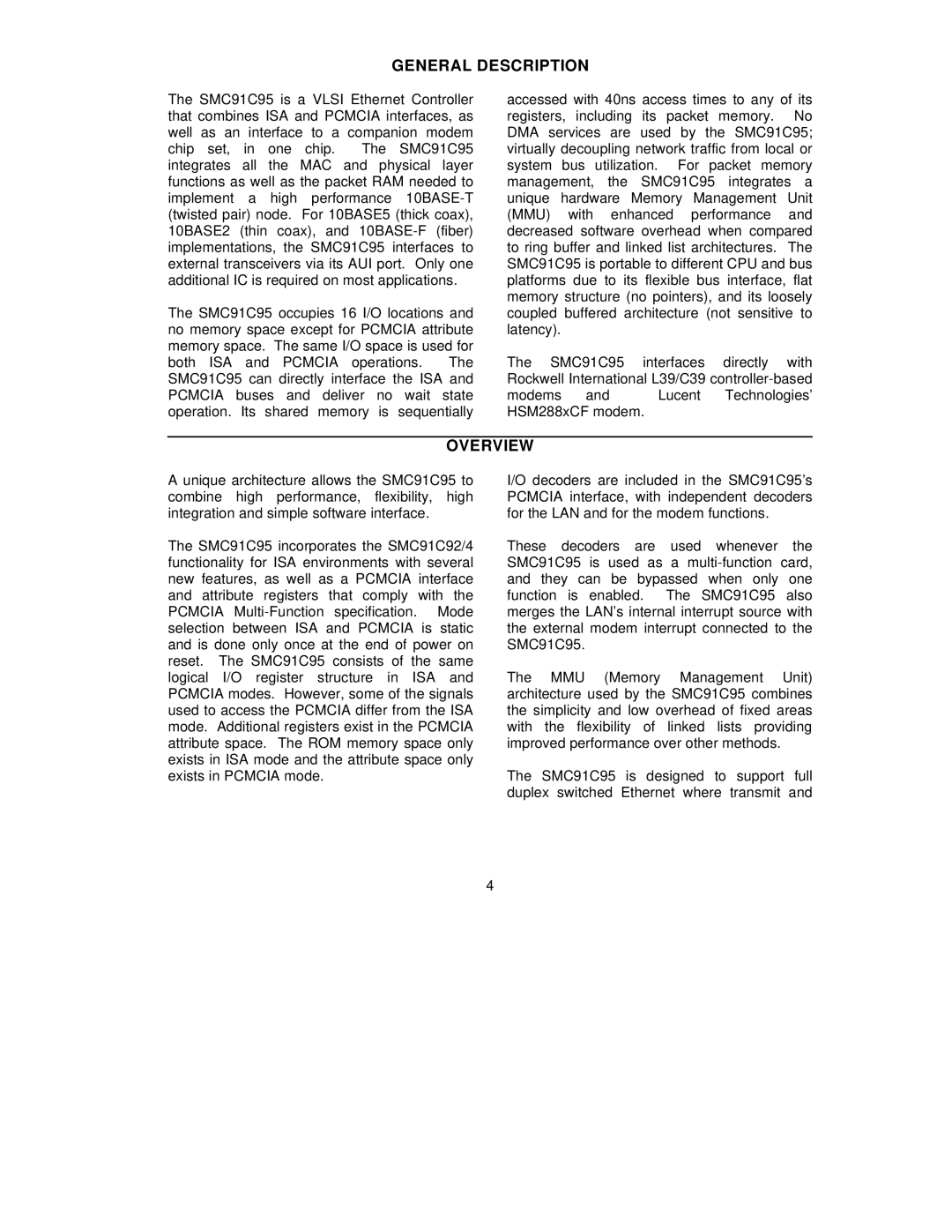GENERAL DESCRIPTION
The SMC91C95 is a VLSI Ethernet Controller that combines ISA and PCMCIA interfaces, as well as an interface to a companion modem
chip set, in one chip. The SMC91C95 integrates all the MAC and physical layer functions as well as the packet RAM needed to implement a high performance
The SMC91C95 occupies 16 I/O locations and no memory space except for PCMCIA attribute memory space. The same I/O space is used for
both ISA and PCMCIA operations. The SMC91C95 can directly interface the ISA and PCMCIA buses and deliver no wait state operation. Its shared memory is sequentially
accessed with 40ns access times to any of its registers, including its packet memory. No DMA services are used by the SMC91C95; virtually decoupling network traffic from local or system bus utilization. For packet memory management, the SMC91C95 integrates a unique hardware Memory Management Unit (MMU) with enhanced performance and decreased software overhead when compared to ring buffer and linked list architectures. The SMC91C95 is portable to different CPU and bus platforms due to its flexible bus interface, flat memory structure (no pointers), and its loosely coupled buffered architecture (not sensitive to latency).
The SMC91C95 interfaces directly with Rockwell International L39/C39
modems and Lucent Technologies’ HSM288xCF modem.
OVERVIEW
A unique architecture allows the SMC91C95 to combine high performance, flexibility, high integration and simple software interface.
The SMC91C95 incorporates the SMC91C92/4 functionality for ISA environments with several new features, as well as a PCMCIA interface and attribute registers that comply with the PCMCIA
I/O decoders are included in the SMC91C95’s PCMCIA interface, with independent decoders for the LAN and for the modem functions.
These decoders are used whenever the SMC91C95 is used as a
The MMU (Memory Management Unit) architecture used by the SMC91C95 combines the simplicity and low overhead of fixed areas with the flexibility of linked lists providing improved performance over other methods.
The SMC91C95 is designed to support full duplex switched Ethernet where transmit and
4
